926213
TADF Blue m-ACSO2
≥95%
Synonym(s):
10,10′-(Sulfonylbis(3,1-phenylene))bis(9,9-dimethyl-9,10-dihydroacridine), m-ACSO2, TADF with no host
About This Item
Recommended Products
description
PL: 473 nm (film)
delta EST: 0.07 eV
Quality Level
assay
≥95%
form
powder
band gap
3.1 eV
color
pale yellow
solubility
THF: soluble
toluene: soluble
fluorescence
(blue) (light)
orbital energy
HOMO -5.36 eV
LUMO -2.26 eV
Application
Bright, deep blue and stable emitters for OLEDs are grand challenge on OLED design at the moment. In this context, our m-ACSO2 is a promising TADF as solution-processable TADF blue emitter without the need of a host with a singlet–triplet energy gap (ΔEST) of 0.07 eV.
Storage Class
11 - Combustible Solids
wgk_germany
WGK 3
flash_point_f
Not applicable
flash_point_c
Not applicable
Choose from one of the most recent versions:
Certificates of Analysis (COA)
It looks like we've run into a problem, but you can still download Certificates of Analysis from our Documents section.
If you need assistance, please contact Customer Support.
Already Own This Product?
Find documentation for the products that you have recently purchased in the Document Library.
Our team of scientists has experience in all areas of research including Life Science, Material Science, Chemical Synthesis, Chromatography, Analytical and many others.
Contact Technical Service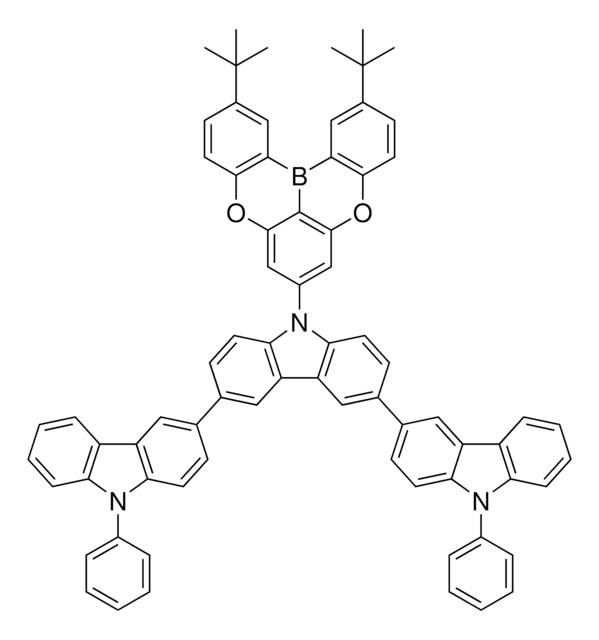

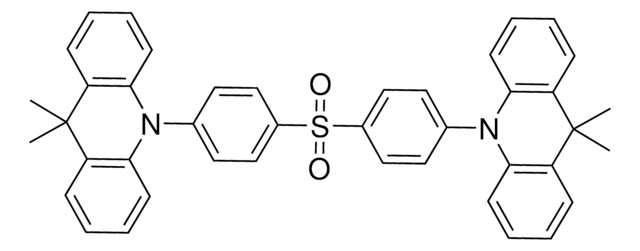
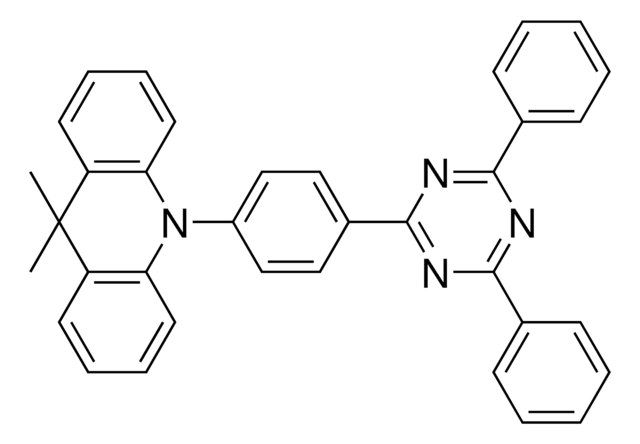
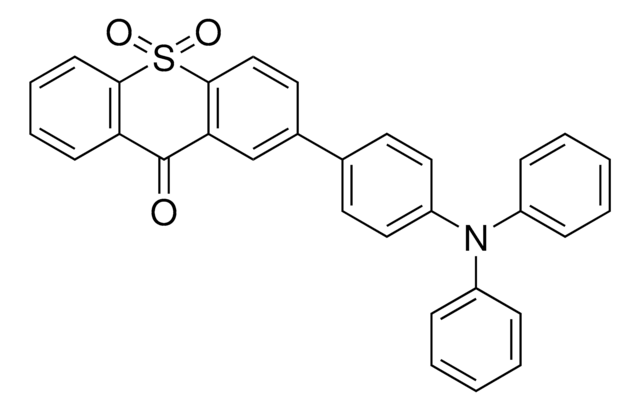
![10-Phenyl-10H,10′H-spiro[acridine-9,9′-anthracen]-10′-one ≥99% (HPLC)](/deepweb/assets/sigmaaldrich/product/structures/394/862/0b4edb18-2cc2-4101-ad81-6b29b0825723/640/0b4edb18-2cc2-4101-ad81-6b29b0825723.png)
iridium(III) 97%](/deepweb/assets/sigmaaldrich/product/structures/309/053/0823f035-245c-433d-b033-2eca2d931c67/640/0823f035-245c-433d-b033-2eca2d931c67.png)
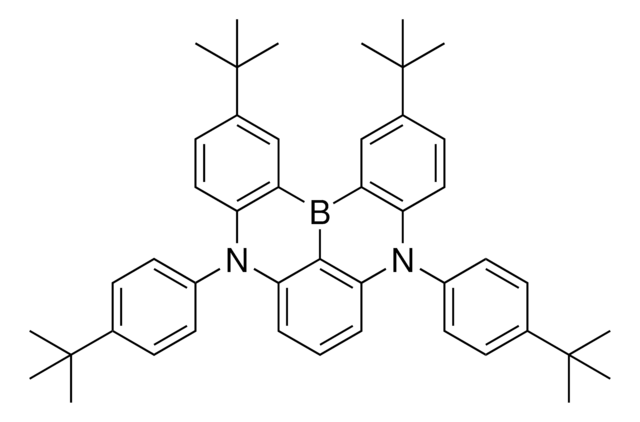
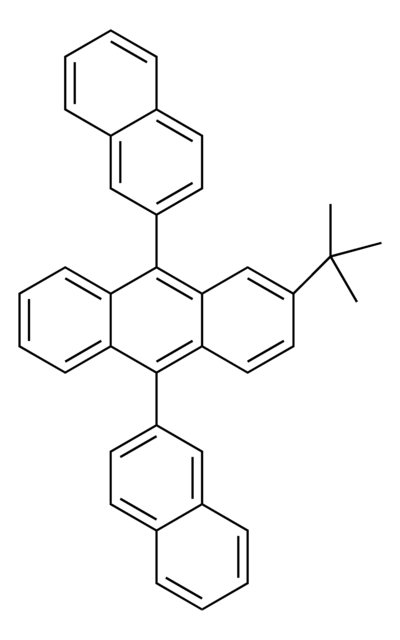
![Tris[2-phenylpyridinato-C2,N]iridium(III) 97%](/deepweb/assets/sigmaaldrich/product/structures/167/234/658d0b76-d31d-4fd5-8041-e04e207227c9/640/658d0b76-d31d-4fd5-8041-e04e207227c9.png)